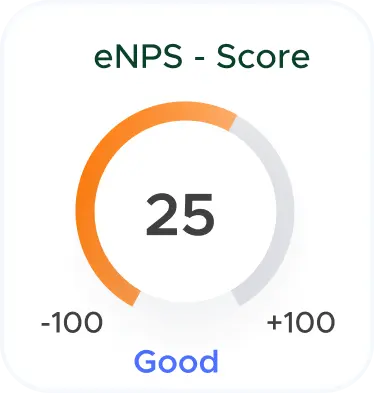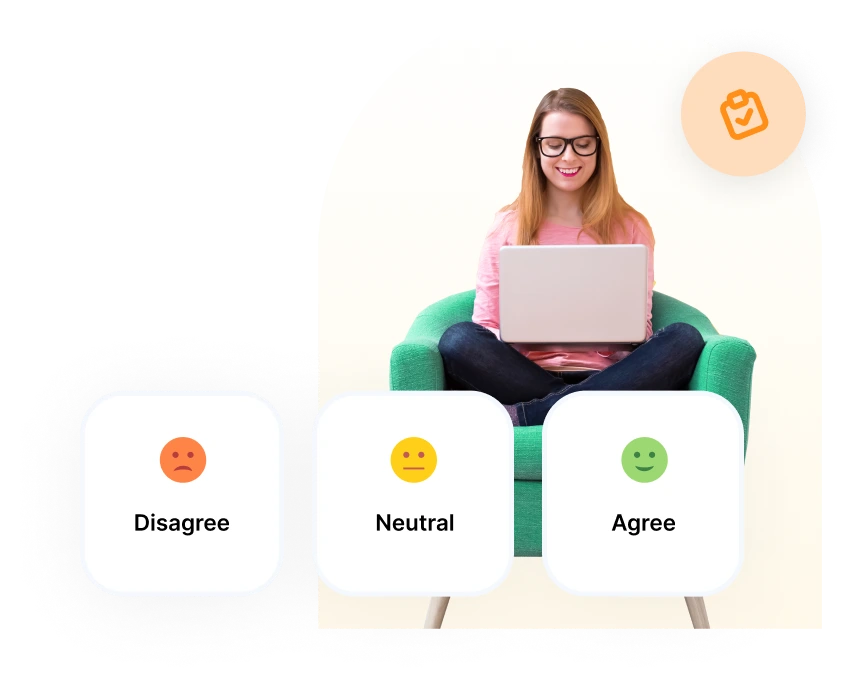✨ لا تفوت الفرصة! سجل في ندوة تقدير الموظفين عبر الإنترنت المقرر عقدها في 29 فبراير. 🎖️
✨ لا تفوت الفرصة! سجل في ندوة تقدير الموظفين عبر الإنترنت المقرر عقدها في 29 فبراير. 🎖️
سجل الآن
Reference check acts as a background verification system which investigates important employment information such as job titles, places of employment, skills, qualifications, and education to ensure that the information the job candidate has provided is accurate.
They can also help verify information provided on a candidate’s resume or in the interview process. For example: tasks and responsibilities previously handled, proficiency in certain skills, and the circumstances under which they left previous employment.
A reference check is a part of the hiring process that involves contacting a job candidate’s previous employers, managers, coworkers, or teachers.
It is typically conducted near the end of the recruitment process and is used to gain insights about a specific candidate by requesting feedback from current and former co-workers. The feedback is typically acquired by asking the reference a variety of questions regarding the applicant, either through a phone call or email.
Reference checks are important for employers for several reasons:
Reference checks allow employers to verify the accuracy and truthfulness of information provided by candidates during the hiring process, including employment history, job titles, responsibilities, and achievements. This helps ensure that candidates have the necessary qualifications and experience for the position.
Reference checks provide valuable insights into a candidate's work ethic, performance, skills, strengths, weaknesses, and interpersonal abilities from the perspective of previous supervisors, colleagues, or clients. This information helps employers assess whether a candidate is a good fit for the role and the organization's culture.
Reference checks help confirm a candidate's professional reputation and credibility within their industry or field. Positive references from previous employers or colleagues can validate a candidate's qualifications and suitability for the position, while negative references may raise red flags and prompt further investigation.
Past behavior is often a strong predictor of future performance. Reference checks provide insights into a candidate's past performance, achievements, and behavior in previous roles, which can help employers assess their potential for success in the new role.
Reference checks can help employers identify potential red flags or concerns about a candidate, such as performance issues, disciplinary actions, conflicts with colleagues, or ethical lapses. This information allows employers to make more informed hiring decisions and mitigate risks associated with hiring unsuitable candidates.
Conducting reference checks can help employers demonstrate due diligence in their hiring process and mitigate legal risks associated with negligent hiring claims. By verifying candidates' qualifications and conducting thorough background checks, employers can minimize the likelihood of hiring individuals who pose a risk to the organization or its employees.
Reference checks provide insights into a candidate's compatibility with the organization's values, mission, and culture. Positive references from previous employers who can attest to a candidate's cultural fit can increase confidence in their ability to integrate successfully into the team and contribute to the organization's success.
The questions typically asked during reference checks are:
Here are some factors that can influence the timeline of reference checks:
The time it takes to complete reference checks often depends on the availability and responsiveness of the references provided by the candidate. If references are readily available and respond promptly to inquiries, the process can be completed more quickly. However, delays may occur if references are difficult to reach or take longer to respond.
The number of references required by the employer can impact the duration of reference checks. Some employers may request multiple references from different employers, supervisors, colleagues, or clients, which can extend the time needed to contact and gather feedback from each reference.
The reference verification process may involve various steps, such as contacting references by phone or email, scheduling interviews or discussions, verifying employment dates and job titles, and conducting background checks. The complexity of these steps can influence the overall duration of reference checks.
The timeline for reference checks may also be influenced by the employer's internal processes and procedures. Some employers may have streamlined systems in place for conducting reference checks, while others may require additional approvals or documentation, which can extend the process.
Reference checks require the candidate's consent and cooperation to contact their references and gather information. Delays may occur if candidates are unresponsive or fail to provide accurate contact information for their references.
Here are steps to conduct a reference check effectively:
Here are some factors to consider regarding the reliability of reference checks:

هذه استطلاعات قصيرة يمكن إرسالها بشكل متكرر للتحقق من رأي موظفيك في مشكلة ما بسرعة. يتضمن الاستطلاع عددا أقل من الأسئلة (لا يزيد عن 10) للحصول على المعلومات بسرعة. يمكن أن تدار هذه على فترات منتظمة (شهرية / أسبوعية / ربع سنوية).

يعد عقد اجتماعات دورية لمدة ساعة لإجراء دردشة غير رسمية مع كل عضو في الفريق طريقة ممتازة للحصول على إحساس حقيقي بما يحدث معهم. نظرا لأنها محادثة آمنة وخاصة ، فإنها تساعدك على الحصول على تفاصيل أفضل حول مشكلة ما.

eNPS (نقاط صافي المروج للموظف) هي واحدة من أبسط الطرق الفعالة لتقييم رأي موظفك في شركتك. يتضمن سؤالا مثيرا للاهتمام يقيس الولاء. تتضمن أمثلة أسئلة eNPS: ما مدى احتمال أن توصي بشركتنا للآخرين؟ يستجيب الموظفون لاستطلاع eNPS على مقياس من 1 إلى 10 ، حيث يشير 10 إلى أنهم "من المحتمل جدا" أن يوصوا بالشركة ويشير 1 إلى أنهم "من غير المحتمل للغاية" التوصية بها.
